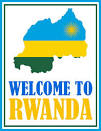This is a guest post by Garvan Walshe
Every time Barack Obama prepares to speak on foreign affairs, hope grows within a group of influential men and women who prophesy that he will return to that golden age when American foreign policy was guided by the spirits of Talleyrand and Metternich called to a seance held at the behest of James Baker and Brent Scowcroft. Every time they dream that national interest, rather than ‘ideology’ can determine how America acts in the world. Every time these “conservative pessimists” are disappointed.
This occurred once more when on the twentieth anniversary of the Tiananmen Square massacre and Solidarity’s overthrow of the Communist regime in Poland, Barack Obama spoke to what the BBC persists in calling the “Muslim world” at Cairo University. It wasn’t perfect. As a set-piece it lacked the intimate connection to urgent events required for great political speeches; the brief paragraph on women’s rights stood aloof from the millions of unequal struggles young women still wage for independence their brothers take for granted; time will tell whether he evaded the blitz-defence mounted by partisans of Israel and Palestine. Yet he ignored the conservative pessimists receiving the loudest cheers when he said:
The fourth issue that I will address is democracy.
And
I do have an unyielding belief that all people yearn for certain things: the ability to speak your mind and have a say in how you are governed; confidence in the rule of law and the equal administration of justice; government that is transparent and doesn’t steal from the people; the freedom to live as you choose. Those are not just American ideas, they are human rights, and that is why we will support them everywhere.
“There is no straight line to realise this promise” he then admitted, aware that he spoke in a country whose only efficient institution is the secret police but whose dictator is so ill that, the BBC reported this morning, he couldn’t attend the speech. Mubarak’s regime is very close to a succession crisis. The smart money’s on his son, Gamal, inheriting becoming the second Pharaoh in his family. But perhaps America should heed Rahm Emanuel, and not let this crisis go to waste.
Mubarak’s death will be, like Franco’s was, an opportunity to negotiate an end to dictatorship. The regime likes to pretend it is the only alternative to the Muslim Brotherhood. And to ensure this it arrests secular opponents like Ayman Nour, or harasses Saad Eddin Ibrahim’s Ibn Khaldun Centre. It should stop. And the Brotherhood itself is weaker than meets the eye. It claims to have won every seat in which its candidates stood in the last elections. As the late Kassem Ja’far explained, they stood only in safe seats. On that basis even Gordon Brown’s Labour Party could claim to do well.
Good democratic transitions are about securing a balance of power, and peaceful mechanisms for changing that balance to reflect the will of the people. These avoid the danger, always present in new democracies, of what is known in Spanish as the autogolpe (self-coup) where, having won an election, a party or preseident ensures there are no more. This is far from impossible: in Egypt, the secular parties need space to grow before they can be expected to compete in fair elections; proportional representation can make it hard for one party to dominate; a separation of the executive from the legislature makes it harder for a president to abuse power. Now America gives Egypt several billion dollars of aid every year. This is said to buy peace with Israel. But Egypt, whose income per head is around the same as Jamaica’s, can’t afford a war. Washington should look to employ its aid to encourage a transition to democracy when Hosni Mubarak goes.
As for his son, he has two models to choose from: King Juan Carlos or King Charles I.


